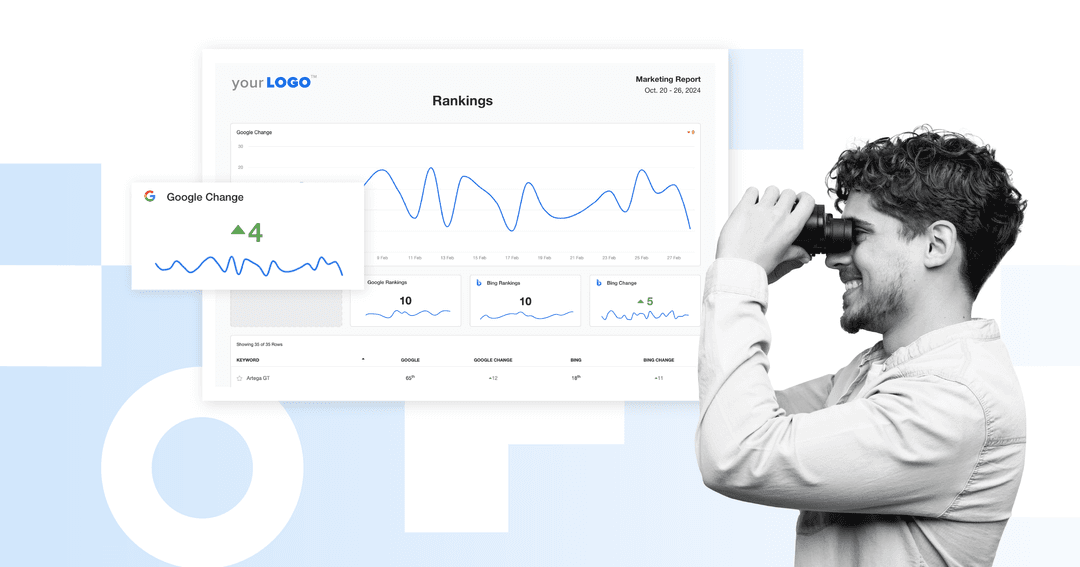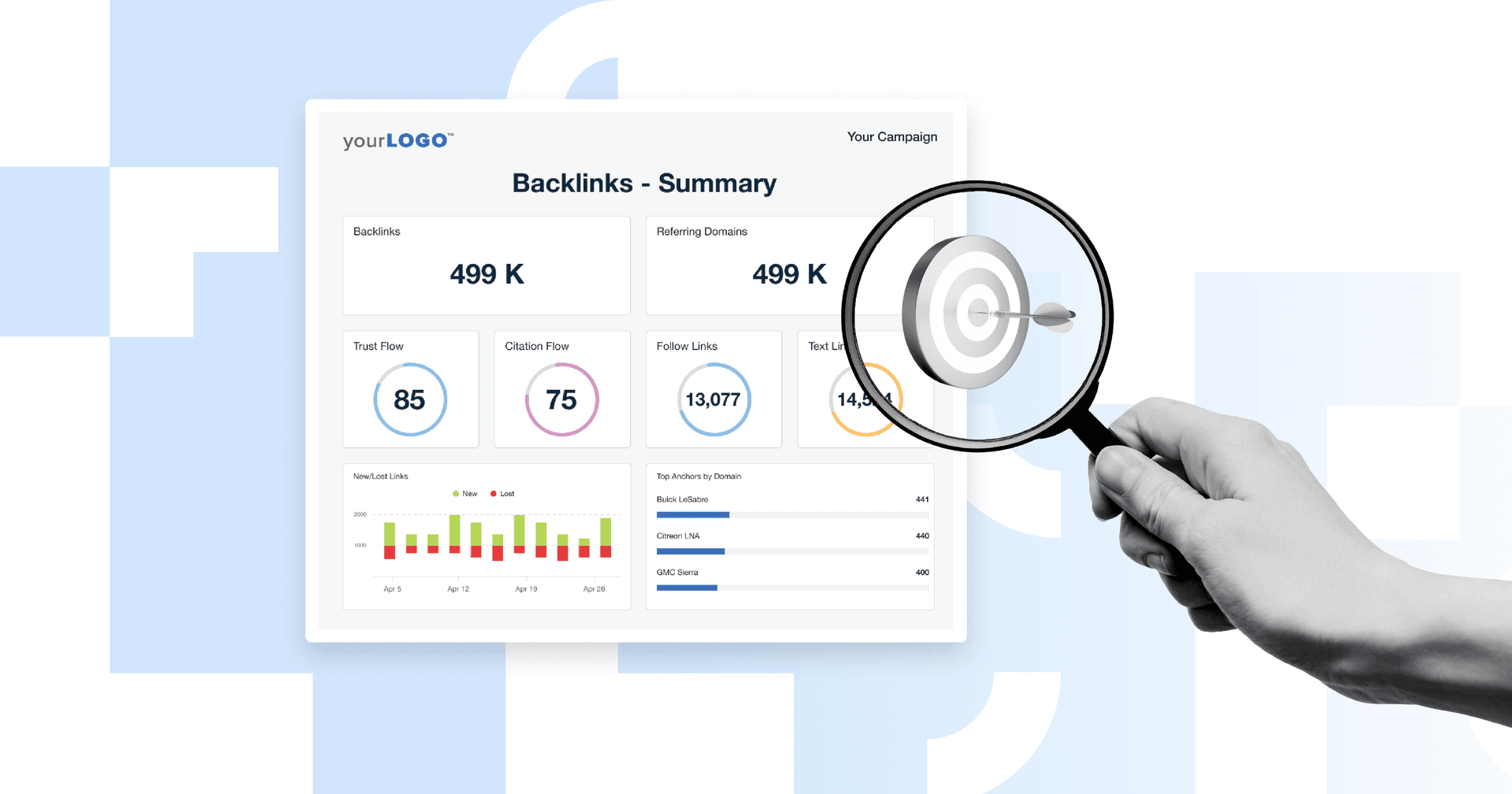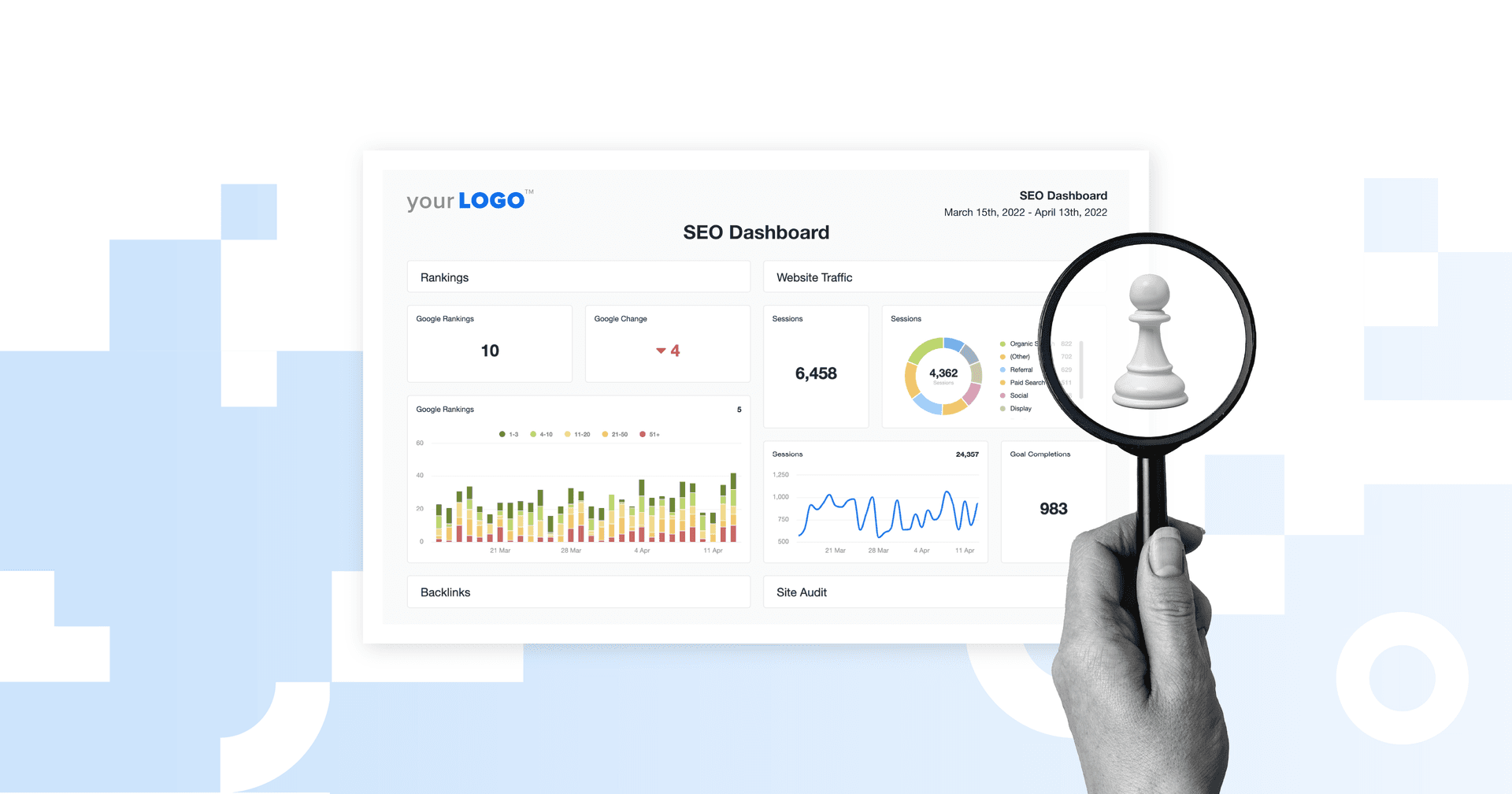Table of Contents
Table of Contents
- What Are Search Engine Rankings?
- Why Monitoring Search Engine Rankings is Essential for SEO
- Which Search Engines to Track and Why
- SEO Tools for Tracking Search Engine Rankings
- Manual vs. Automated Rank Tracking: Which is Better?
- Step-by-Step Guide: How to Monitor Search Engine Rankings Effectively
- Common Mistakes To Avoid When Monitoring Rankings
- Stay Ranked To Stay Ahead
7,000+ agencies have ditched manual reports. You can too.
Free 14-Day TrialQUICK SUMMARY:
Your clients expect search engine results visibility—and proof you’re delivering it. This guide explains how agencies should monitor search engine rankings efficiently, choose the right tools, and turn raw ranking data into insights that build trust, retention, and long-term SEO growth.
If you're running SEO campaigns, you know rankings are unpredictable. One day, your client is sitting comfortably on page one, and the next, they’ve dropped a few spots for no apparent reason. Frustrating? Absolutely. But that’s why monitoring search engine rankings is non-negotiable.
Keeping an eye on rankings helps you spot trends, measure what’s working, and catch problems before they snowball. It also gives you the insights you need to prove your results to clients.
Effective search engine monitoring gives agencies a clear picture of keyword performance, organic traffic shifts, and search visibility trends—helping you turn ranking data into actionable insights.
Because, let’s face it, they care about one thing: “Are we showing up when people search for us?”
In this guide, we’ll walk you through why rank tracking matters, the best tools to use, and how to do it effectively without wasting hours manually checking Google. At scale, you’ll want scalable enterprise rank tracking that supports multi‑brand, multi‑region rollups and AI‑era SERP features.
What Are Search Engine Rankings?
Search engine rankings are exactly what they sound like: Where a webpage appears in search results for a given keyword.
If your client is ranking #1, congrats! They’re at the top of the page, soaking up the majority of clicks. But if they’re buried on page two or beyond, they might as well be invisible.
Rankings aren’t set in stone, though. Using a search engine monitoring tool ensures you’re not just checking search engine rankings occasionally, but continuously tracking patterns and performance across devices and regions.
They shift constantly based on factors like:
Relevance: Does the content answer the search query?
Authority: Are other reputable sites linking to yours?
User Experience: Is the site fast, mobile-friendly, and easy to navigate?
Search Personalization: Location, device type, and browsing history can tweak individual results.
This is why tracking rankings isn’t just about checking where a website stands today—it’s about spotting trends over time and knowing when (and why) things change.
Why Monitoring Search Engine Rankings is Essential for SEO
Search engine optimization without rank tracking is missing a pertinent component of the process. You can put in all the work—optimizing pages, building links, improving site speed—but if you’re not tracking where your client ranks, how do you know if it’s working?
Here’s why keeping an eye on rankings is a must:
1. Measure SEO Success
Clients don’t care about impressions or bounce rates, they care about results. If rankings improve, you have proof that your SEO efforts are paying off. If they drop, it’s a signal that something needs attention.
2. Catch Algorithm Updates Before They Catch You
Google rolls out updates constantly, and they can shake up rankings overnight. Regular tracking helps you spot sudden drops and adjust your strategy before rankings (and traffic) take a hit.
3. Identify New Competitors
Ranking on page one is great—until a new competitor swoops in and knocks you down a few spots. Monitoring rankings helps you see who’s climbing the SERPs (Search Engine Results Pages) to analyze what they’re doing right and stay ahead. Using an SEO competitor analysis tool can help identify new SERP competition you may not have known existed.
4. Track Local vs. Global Performance
A business ranking #1 in New York might not even crack the top 10 in Los Angeles. If your clients serve specific regions, tracking location-based rankings is key to ensuring they show up where it matters most.
5. Optimize for the Right Keywords
Sometimes, a keyword you thought would drive traffic just… doesn’t. Regular rank monitoring helps you double down on what’s working and pivot away from underperforming keywords.
If you’re serious about SEO, rank tracking is how you prove campaign success, stay ahead of the competition, and fine-tune your strategy in real time.
Think of it as your SEO rank monitor—your real-time feedback loop for everything from keyword wins to sudden ranking losses. The right search engine ranking tracker turns ranking data into strategy.
Which Search Engines to Track and Why
Google may dominate the search world, but it’s not the only search engine that matters. Depending on your client base, tracking multiple search engines will give a more complete picture of SEO performance.
Here’s a breakdown of the key players:
1. Google
Google controls approximately 90% of global search traffic, so if your client is ranking well here, you’re in good shape. But keep in mind:
Google rankings vary by location, device, and even user behavior.
Features like People Also Ask and Featured Snippets push organic results lower.
Local SEO efforts matter—Google My Business rankings influence visibility for brick-and-mortar businesses.
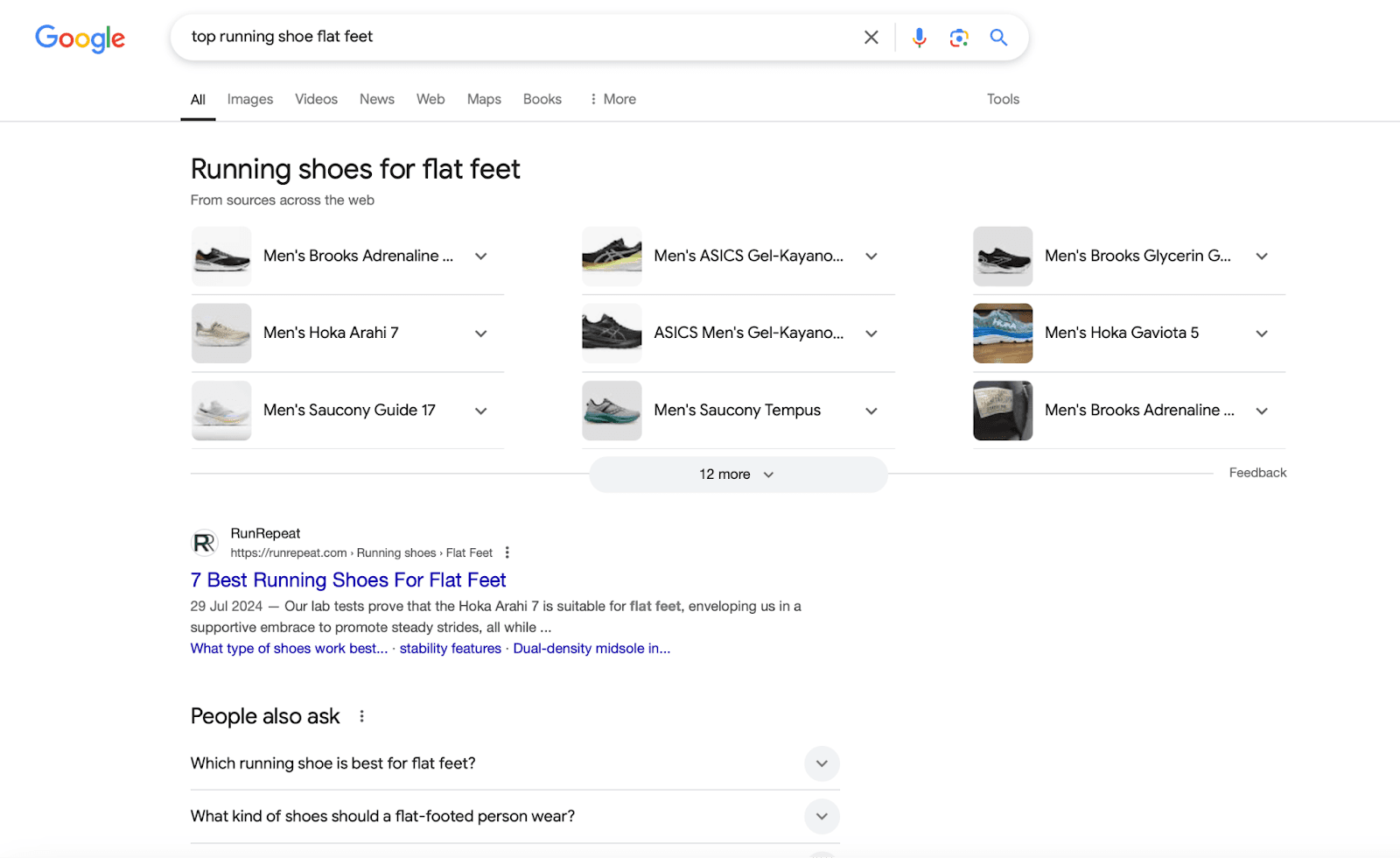
Most agencies use a Google search engine monitor or automated rank tracking software to collect consistent keyword ranking data without personalization bias.
2. Bing and Yahoo
Bing and Yahoo combined make up about 5% of global search traffic—and while that may seem small, they’re goldmines in certain industries, like finance, healthcare, and B2B.
Why?
Bing’s audience tends to be older, more affluent, and less tech-savvy.
It powers search for Microsoft products (Edge, Cortana, Office, etc.).
Yahoo search is powered by Bing, so optimizing for one helps with both.
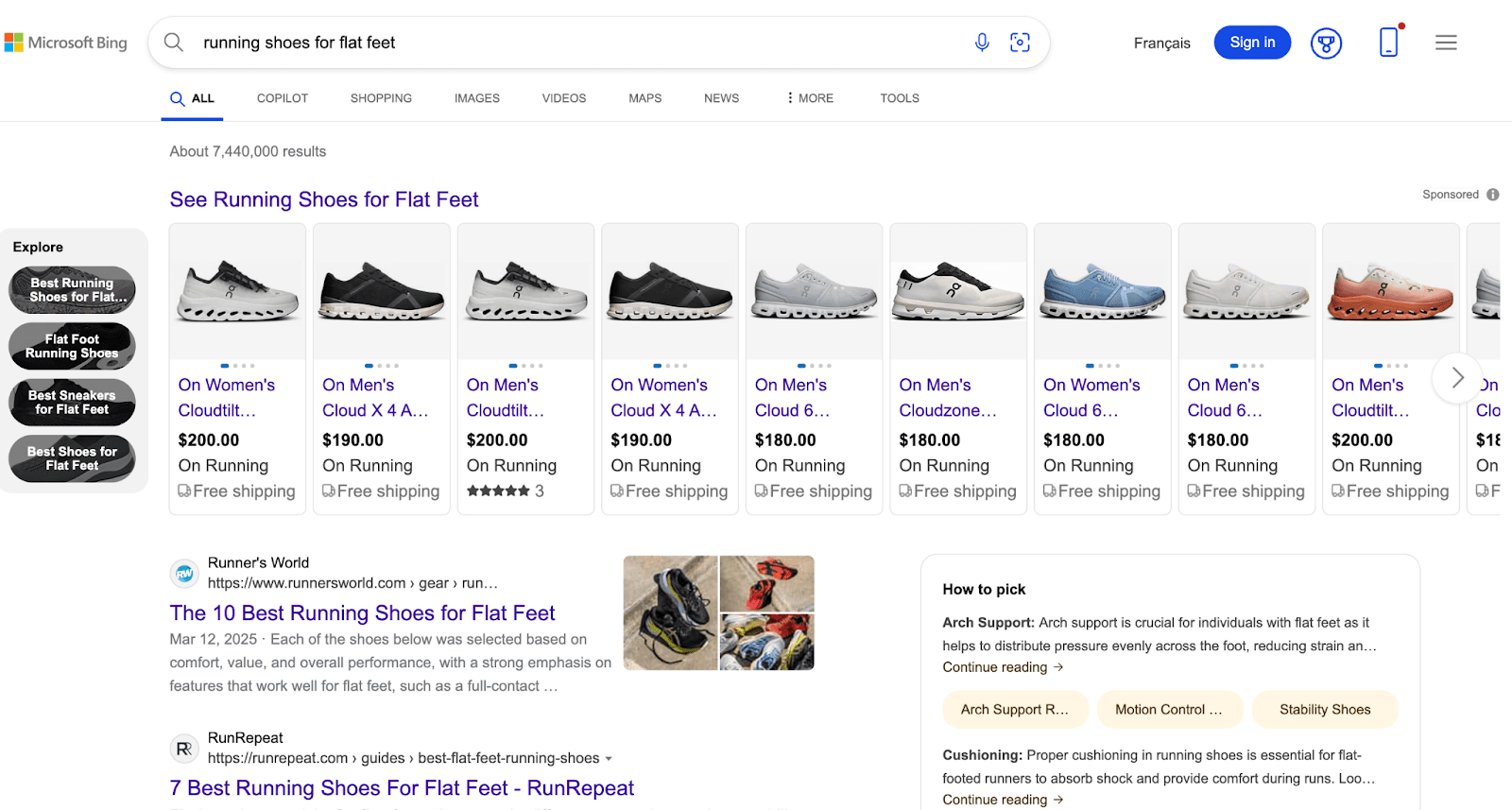
3. YouTube
Fun fact: YouTube is the second-largest search engine in the world. If your agency handles video content, tracking rankings here is just as important as Google.
SEO for YouTube means:
Optimizing video titles, descriptions, and tags.
Tracking video engagement (watch time, likes, and comments).
Ranking for relevant search terms within YouTube itself.
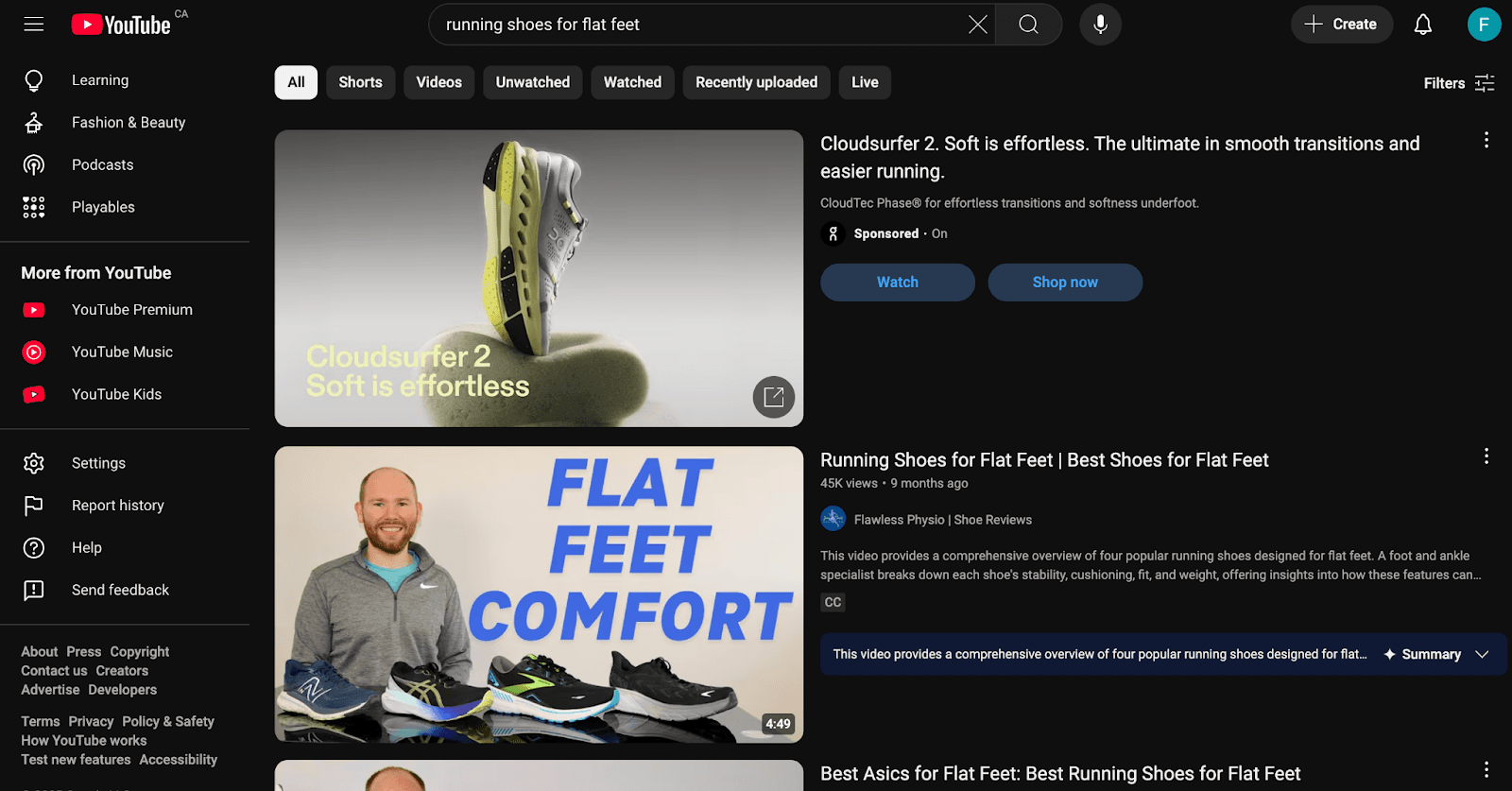
4. Amazon
If you work with ecommerce brands, Amazon SEO is a must. Shoppers search for products directly on Amazon more often than on Google. Ranking here is all about:
Product titles and descriptions
Keyword-rich bullet points
Customer reviews and ratings
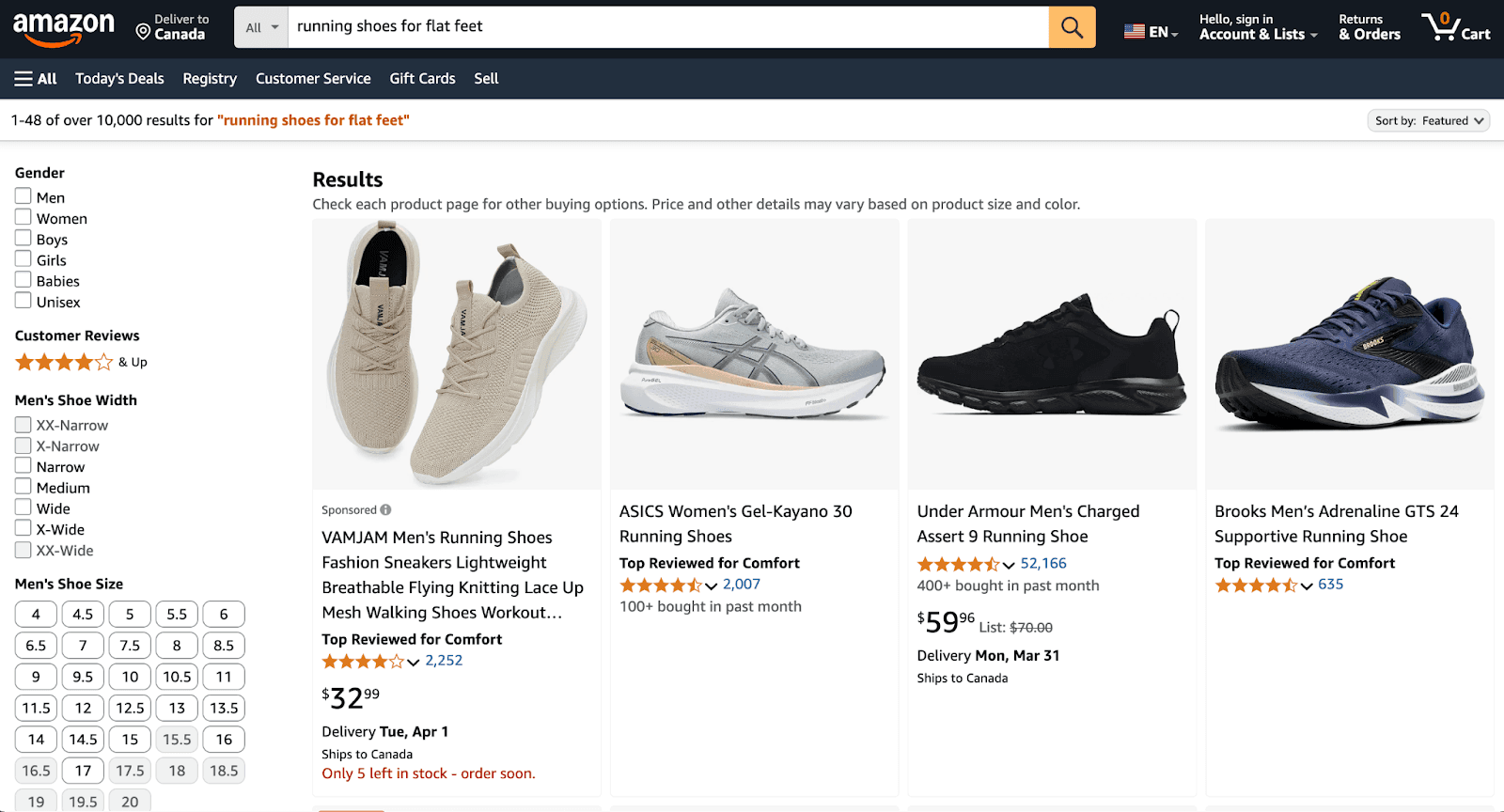
5. Other Niche Search Engines
Depending on your client’s industry, these platforms might also matter:
DuckDuckGo (privacy-focused users)
Baidu (for businesses targeting China)
Yandex (popular in Russia and Eastern Europe)
So, which search engine should you focus on? For most agencies, Google will be priority #1—but don’t ignore other major search engines like Bing, YouTube, or Amazon if they align with your client’s audience.
SEO Tools for Tracking Search Engine Rankings
Manually searching Google to check rankings and keyword tracking isn’t just time-consuming—it’s also unreliable. Personalized search results mean what you see might not reflect actual rankings.
That’s why agencies use rank tracking tools to get accurate, unbiased data—and generate actionable search engine ranking reports for their clients.
Here are some of the best options:
Google Search Console
Google Search Console (GSC) provides direct ranking data from Google itself. While it doesn’t offer detailed rank tracking, it shows keyword ranking (i.e., which keywords bring traffic), average position tracking, and click-through rates.
The “Performance” report is especially useful for spotting trends and seeing which queries are gaining or losing traction.
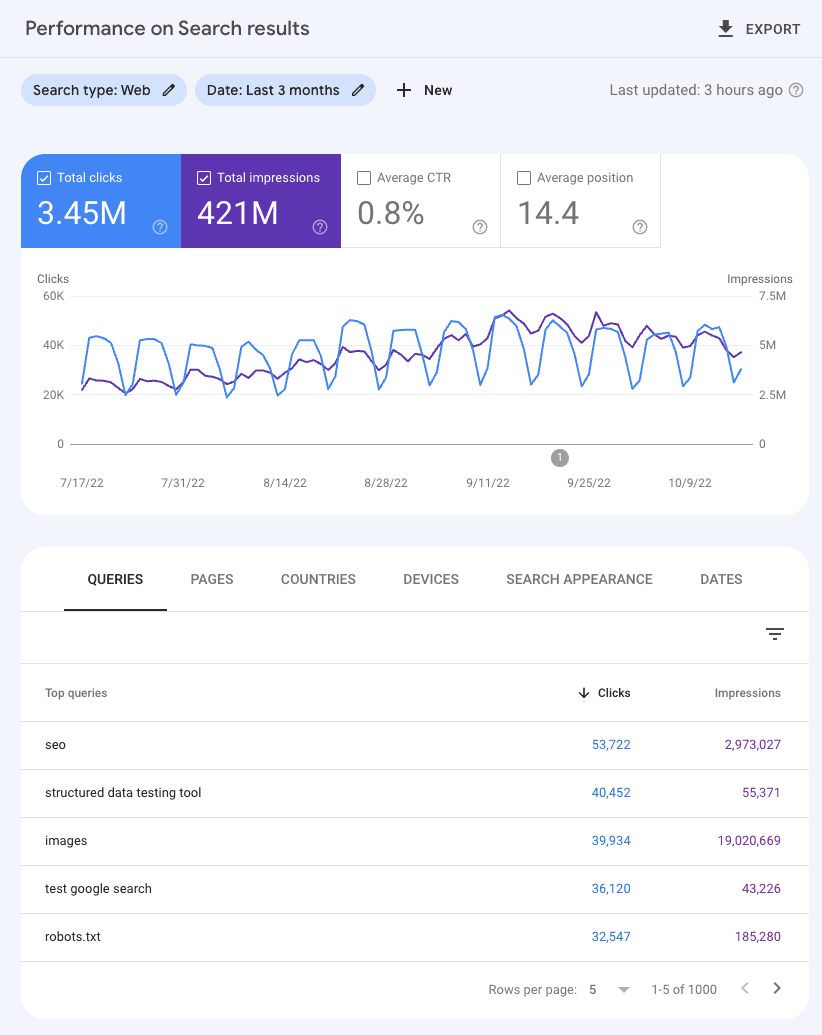
(Source: Google)
Semrush Rank Tracker
Semrush is ideal for agencies that need to track rankings alongside competitor insights. It monitors rankings across multiple locations and devices, provides alerts for ranking changes, and includes backlink data for a more complete SEO picture.
(Source: Semrush)
Ahrefs Rank Tracker
Ahrefs specializes in backlink-driven SEO and offers powerful rank tracking. It monitors search rankings for desktop and mobile separately, tracks SERP features like Featured Snippets, and shows how backlinks impact rankings over time.
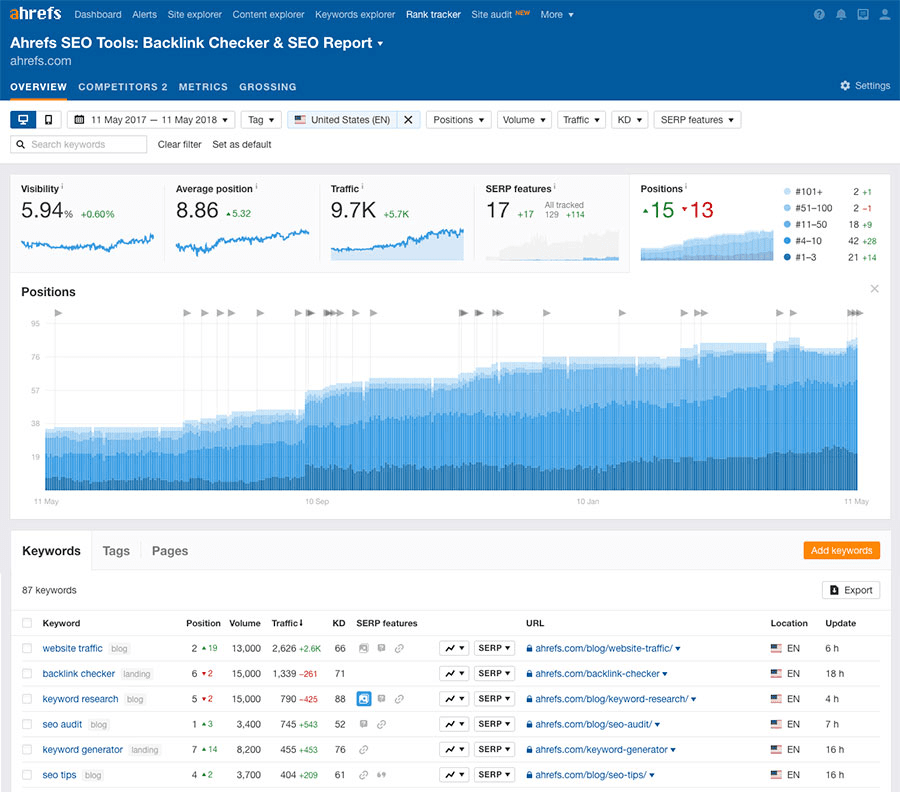
(Source: Ahrefs)
Moz Pro Rank Checker
Moz Pro offers a straightforward way to track rankings on Google, Bing, and Yahoo. It’s a good choice for agencies that need simple, easy-to-read reports and a reliable keyword rank checker to stay on top of performance across multiple search engines.
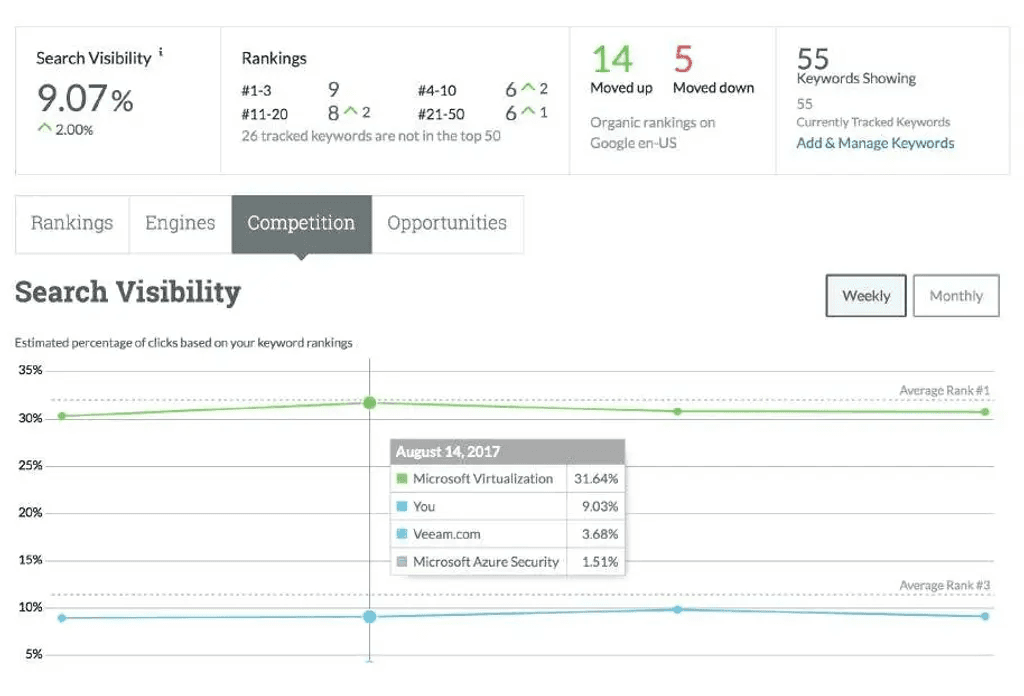
(Source: Moz)
AgencyAnalytics Rank Tracker Integration
For agencies managing multiple clients, AgencyAnalytics automates rank tracking and reporting. It tracks rankings across search engines, locations, and devices while integrating with the best keyword ranking tools, such as Google Analytics.
AgencyAnalytics’ Rank Tracker integration features built-in keyword monitoring, which makes monitoring performance, highlighting wins, and delivering clear, client-ready reports easy without manual effort.
For agencies, reliable search engine monitoring software eliminates the guesswork from SEO reporting. Instead of compiling multiple spreadsheets, tools like AgencyAnalytics create automated search engine ranking reports that combine position tracking, keyword trends, and performance analysis in one place.
If client reporting takes too much time, automation saves hours each month.
Agency Tip: With more than 80 integrations to choose from, including Semrush, Ahrefs, Moz, and Google Search Console, agencies access data from multiple keyword ranking tools from a central location within AgencyAnalytics!
Even better? Use Ask AI to surface trends and create strategy in seconds flat. And set metric alerts so you’re notified the second key metrics change–empowering your agency to get them back on the right track, right away.
Which Rank Tracker Is Best for Your Agency?
The right rank tracker depends on your needs and how you work with clients:
For free, basic tracking: Google Search Console
For competitor insights: SEMrush or Ahrefs
For simple, no-frills tracking: Moz Pro
For managing multiple clients at scale: AgencyAnalytics
But choosing a rank tracker is just the first step. Once you’ve collected the data, you need a streamlined way to share insights and prove performance. That’s where SEO reporting software fills the gap.
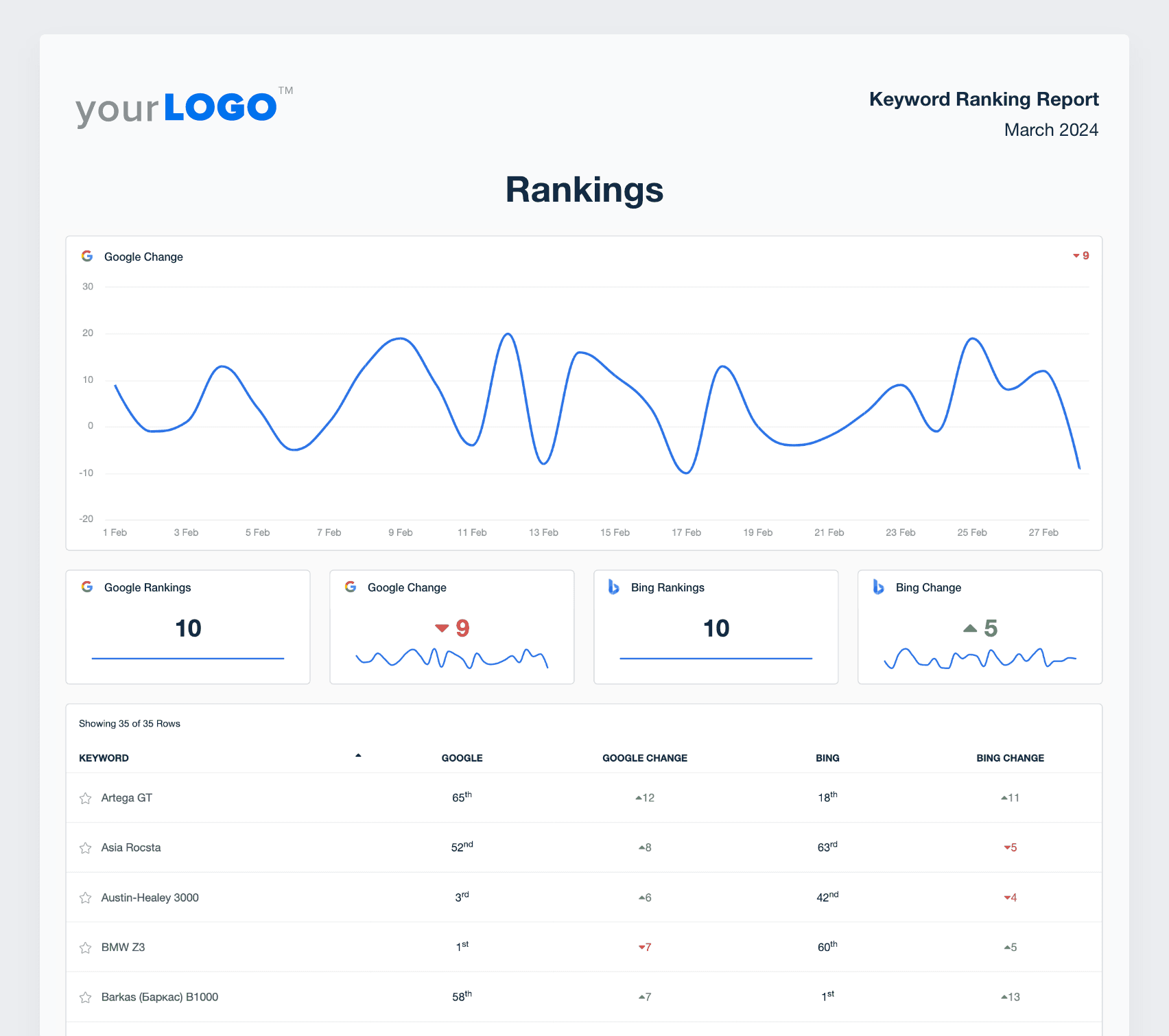
Build fully customized, automated SEO reports that integrate with popular rank tracking tools. Transform ranking data into polished, client-ready deliverables without getting buried in spreadsheets. Try AgencyAnalytics free today!
Automated search ranking tools not only track search engine positions but also generate professional search engine ranking report templates—perfect for showing clients exactly how SEO strategies translate into measurable results.
Manual vs. Automated Rank Tracking: Which is Better?
Agencies have two main ways to track search rankings: manual tracking (searching keywords yourself) or automated tracking (using software).
While both methods have their place, one is far more efficient, especially at scale.
Manual Rank Tracking: When It Works (and When It Doesn’t)
Manually searching Google to check rankings might seem like the simplest approach. Just type in a keyword and see where your page ranks, right? Not quite.
Pros of Manual Tracking:
It’s free—no software required.
Works for quick, one-off ranking checks.
It’s useful for small-scale, localized searches.
Cons of Manual Tracking:
Google personalizes results based on search history, location, and device, making rankings unreliable.
Rankings fluctuate throughout the day, so what you see at one moment might not be the case later.
Tracking dozens (or hundreds) of keywords manually is time-consuming and impractical for agencies.
Automated Rank Tracking: Why Agencies Rely on It
Automated search engine rank tracking software removes the guesswork and effort from monitoring SEO performance, providing unbiased data for ranking monitoring across multiple search engines. It acheives this by gathering unbiased ranking data across multiple locations, devices, and search engines.
Pros of Automated Tracking:
Provides accurate SEO data analytics.
Tracks rankings across multiple search engines, locations, and devices.
Saves hours of work, especially for agencies managing multiple clients.
Allows for historical tracking to spot ranking trends over time.
Generates automated reports to prove SEO results to clients.
The only downside is that some rank-tracking tools cost money. However, for agencies, the time saved and insights gained more than justify the investment.
Which Method Should You Use?
For agencies, automated rank tracking wins—hands down. It delivers accurate, scalable, and real-time insights without the hassle of manual checks.
If you still track keyword rankings and SERPs manually, it’s time to switch.
Step-by-Step Guide: How to Monitor Search Engine Rankings Effectively
Tracking rankings isn’t just about checking where a site stands today, it’s about spotting trends, identifying opportunities, and making informed SEO decisions.
Here’s how to set up an effective rank monitoring system.
1. Set Up a Rank Tracker
The first step is choosing a reliable rank tracking tool. Whether you’re using Google Search Console, Semrush, Ahrefs, or a dedicated agency tool like AgencyAnalytics, make sure it lets you track keyword rankings across locations, devices, and time.
Your rank tracker acts as a search engine ranking monitor, continuously collecting keyword data and generating a visual search engine rankings report to simplify client updates.
Look for historical data and automated reporting features to simplify performance analysis and client communication.
Once you’ve selected a tool, add your client’s website and connect relevant integrations (Google Analytics, Google Ads, etc.).
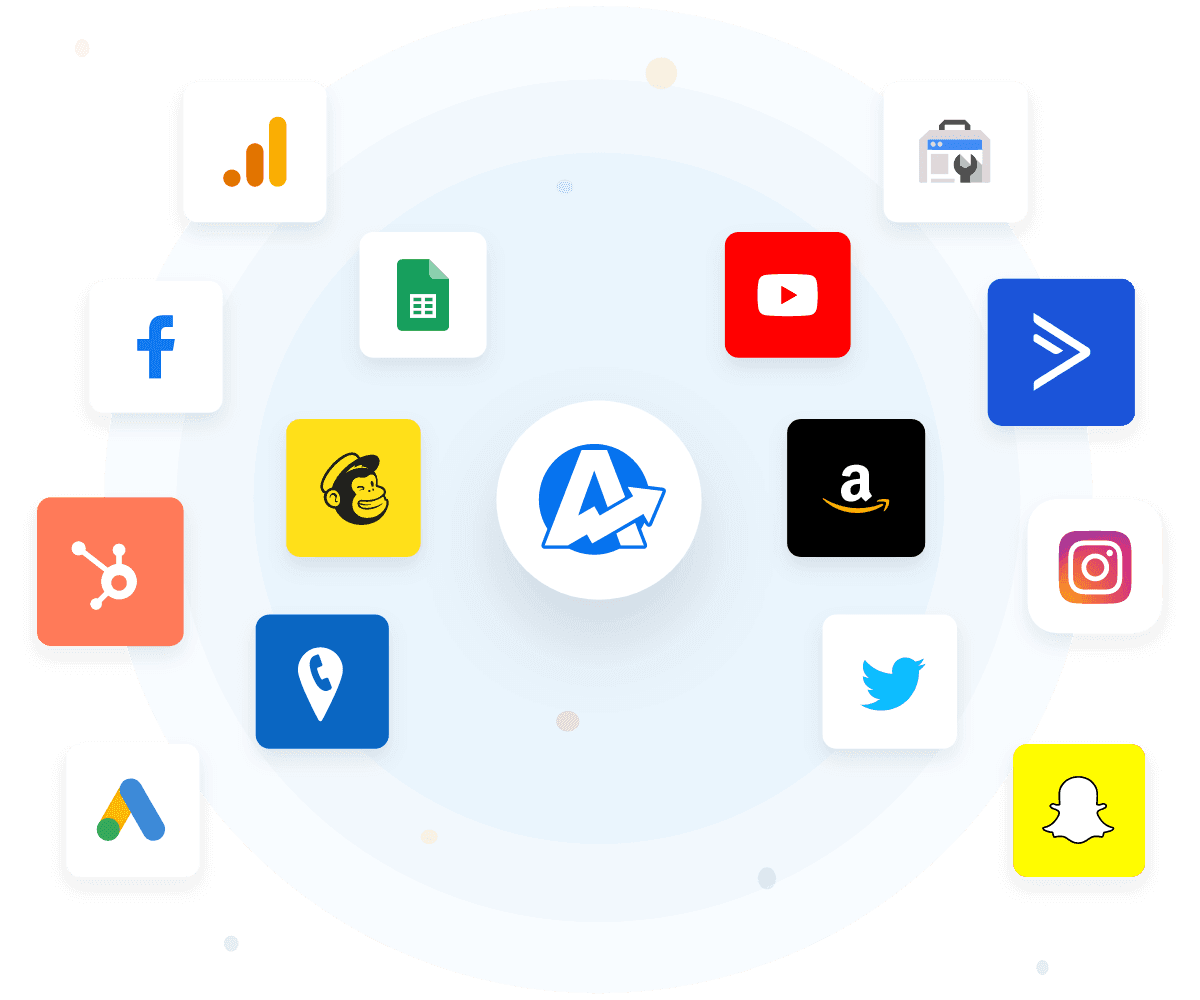
With more than 80 built-in integrations, AgencyAnalytics pulls all your clients’ rank tracking data under one roof. Spend less time switching tools and more time scaling results. Try it free for 14 days.
2. Choose the Right Keywords to Monitor
Not all keywords are worth tracking. Focus on:
Primary Business Keywords: Core terms your client’s site should rank for.
High-Intent Keywords: Phrases that indicate a user is ready to take action.
Long-Tail Keywords: Lower competition but often higher conversion rates.
Branded Keywords: Important for reputation management and visibility.
Target Keywords: The terms most closely aligned with your client’s core offerings and goals.
If you’re running local SEO campaigns, track rankings by location to see how visibility differs in key markets.
3. Analyze Rank Changes Over Time
Rankings naturally fluctuate, but the trend over time is what really matters. Instead of panicking over small daily shifts, pay attention to:
Steady Rank Increases: A sign your SEO efforts are working.
Sudden Drops: Could indicate a Google algorithm update, lost backlinks, or technical issues.
Competitor Movements: If they’re outranking your client, analyze their strategy.
4. Adjust Your SEO Strategy Based on Data
Rank tracking is only useful if it leads to actionable insights. Based on ranking trends, consider:
Updating content to improve relevance.
Optimizing for better on-page SEO (title tags, meta descriptions, structured data).
Building high-quality backlinks to strengthen authority.
Targeting new keywords that align with emerging search trends.
Monitoring rankings is an ongoing process. The goal is to stay ranked, which requires more than just watching the numbers. Many agencies make mistakes that lead to misinterpreted data, wasted efforts, or even ranking losses.
To ensure your tracking strategy is effective, it’s just as important to know what not to do as it is to know what works.
Impress clients and save hours with custom, automated reporting.
Join 7,000+ agencies that create reports in under 30 minutes per client using AgencyAnalytics. Get started for free. No credit card required.
Already have an account?
Log inCommon Mistakes To Avoid When Monitoring Rankings
Tracking rankings is one thing. Doing it in a way that supports smart SEO decisions? That’s where a lot of agencies get tripped up.
Here are the mistakes that lead to confusion, wasted time, and missed opportunities—and how to avoid them.
1. Focusing Only on Short-Term Fluctuations
Rankings aren’t static. They shift for all sorts of reasons—algorithm tweaks, competitor activity, and even changes in how users search. Obsessing over daily ups and downs leads to knee-jerk reactions that don’t help long-term performance.
Instead of reacting to every dip, look for patterns over weeks or months. A temporary dip is just noise. A consistent drop? That’s worth investigating.
2. Ignoring Mobile Rankings
As of January 2025, mobile devices account for almost 63% of global web traffic, so it’s no longer safe to assume desktop rankings tell the full story.
A site that ranks well on desktop but performs poorly on mobile will struggle, as mobile rankings often reflect different user behavior, SERP layouts, and competitors.
3. Tracking Too Many Keywords (or the Wrong Ones)
Trying to monitor every keyword under the sun doesn’t strengthen your reporting—it just makes it noisy.
Focus on keywords that matter: those that align with your client’s services, match buyer intent, and have enough search volume to drive results. If a keyword isn’t likely to influence traffic or conversions, it’s probably not worth your time.
Also: Don’t ignore the value of long-tail keywords. Even with a lower volume, they’re often easier to rank for and deliver highly qualified traffic.
4. Not Considering Local Search Variations
A keyword might rank #1 in Toronto and #8 in Vancouver. National rankings won't cut it if your clients rely on location-based visibility. You need tools that support geo-specific rank tracking, especially for service-based businesses and brick-and-mortar locations.
Local rankings are influenced by Google Business Profiles, proximity, and even local citations—elements national tools might miss.
5. Overlooking Competitor Rankings
Knowing your client’s own rank is useful—but knowing how they stack up against competitors is powerful. If they lose a position, find out who replaced them and why.
Are they publishing fresher content?
Earning more backlinks?
Using schema markup to win SERP features?
This competitive insight helps you make smarter decisions and keeps your SEO strategy proactive.
And don’t just look at direct business competitors. In some SERPs, you’re competing with marketplaces, directories, or content publishers. Understanding what results dominate the page helps you adjust your content strategy.
6. Relying on a Single Rank Tracking Tool
No search engine rank tracker or SEO ranking monitoring tool has perfect visibility into every keyword, every location, or every device type. That’s why it helps to cross-reference data from more than one source.
For example, you might use AgencyAnalytics for client-friendly reports while checking Google Search Console for click and impression data straight from Google. The overlap will help confirm trends—and highlight any inconsistencies worth digging into.
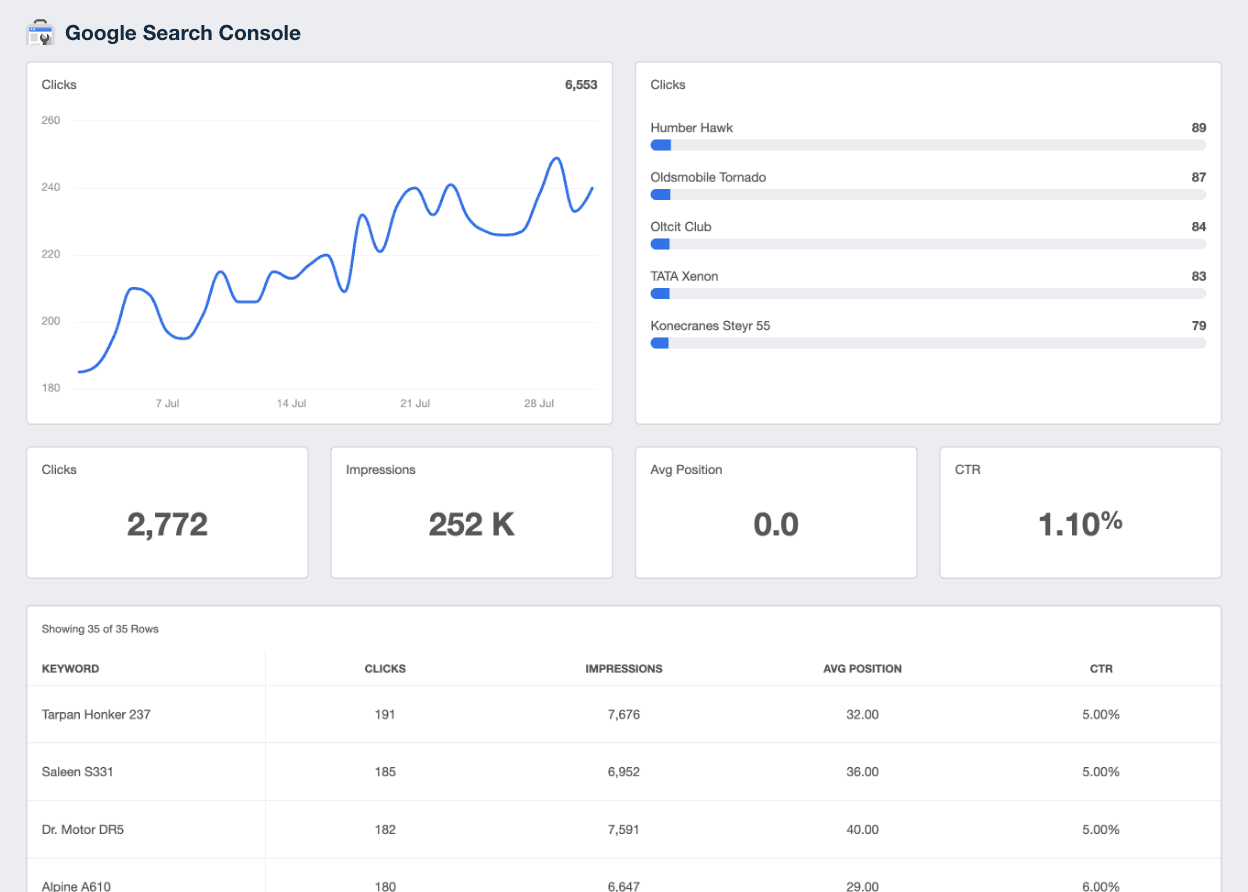
AgencyAnalytics' Google Search Console integration brings keyword rankings, click data, and search impressions into one centralized dashboard—no manual pulling, no guesswork. Start your free 14-day trial today!
7. Not Acting on the Data
This is the most common (and most avoidable) mistake: Tracking rankings but never using the data to drive action.
If rankings are slipping, don’t just note it—investigate why. Audit the page, check technical SEO, and review competitor content. If rankings are climbing, figure out what’s working so you can replicate the success elsewhere.
Rank tracking isn’t the end goal—it’s a feedback loop. Use it to test ideas, validate strategies, and align your SEO work with actual outcomes.
Consistent search engine ranking analysis turns surface-level ranking data into strategic insight. Use automated reporting tools to check search engine rankings over time, detect anomalies, and maintain a stable presence across every major search engine.
Stay Ranked To Stay Ahead
Effective rank monitoring sets the foundation for smarter SEO decisions and stronger client relationships. When you track rankings with purpose, you empower your clients with refined strategies, deliver wins, and help them stay ahead of the competition.
Agencies focusing on long-term performance stop reacting to daily ranking noise and start spotting meaningful trends.
Agencies that prioritize the right keywords avoid cluttered reports and get clearer insights.
Agencies that invest in automation free up time to focus on client work that moves the needle.
With an SEO reporting dashboard from AgencyAnalytics, agencies monitor rankings across devices, locations, and search engines—all while delivering clean, client-ready reports.
It's part of a complete SEO software for agencies stack that helps you report faster, track smarter, and scale growth without adding headcount.
Start your free trial today to discover why more than 7,000 agencies rely on AgencyAnalytics to win the SEO race.
FAQs About Monitoring Search Engine Rankings
Still have questions about monitoring search engine rankings? Don’t worry! We’ve got you covered.
Use a keyword rank tracking tool that pulls unbiased data across search engines, devices, and locations. Tools like AgencyAnalytics automate this process, showing keyword positions, SERP features, and performance trends—all in one dashboard. Manual tracking is unreliable due to search personalization, so automation ensures accuracy and saves time.
Google Search Console is the best free rank tracker. It provides average positions for keywords, click-through rates, and impressions. While not as detailed as paid tools, it’s a reliable starting point for spotting trends and identifying which keywords drive traffic.
Check rankings weekly or bi-weekly to spot trends without overreacting to daily fluctuations. Short-term shifts are common, but patterns over time provide real insight. Use tools like AgencyAnalytics to automate reports and monitor rankings without constant manual checks.
Choosing relevant keywords starts with understanding search intent and keyword relevance. Focus on the specific keywords your clients’ audiences actually use—those tied to their products, services, or pain points. Build a keyword list that includes both high potential keywords and long-tail phrases to capture more organic traffic. Analyze rankings regularly to spot keyword gaps and add keywords that show growth opportunities.
Tools like AgencyAnalytics help agencies and website owners gain insights into which web pages rank well for certain keywords and where improvements are needed. By tracking all the keywords that matter, you ensure your SEO strategy aligns with user intent and drives measurable online visibility.
Rankings depend on relevance, authority, and user experience. Google also considers site speed, mobile-friendliness, backlinks, structured data, and local signals. Rankings are dynamic—algorithm updates, competitors, and user behavior all influence SERP positions.
Yes, with the right SEO tool, you can track rankings by city, region, or country. Local SEO visibility varies widely, and tools like AgencyAnalytics let you monitor how keywords perform in targeted areas so you know where your client is winning—or falling behind.
Mobile and desktop rankings often differ due to user behavior, device layout, and SERP variations. Mobile-first indexing means Google uses the mobile version of your site for ranking. Always track both to get a full picture—especially since mobile traffic now accounts for over 60% of web visits.
When site migration or major content updates occur, keyword positions can fluctuate significantly. Monitoring keywords closely ensures you retain online visibility through the transition. During site changes, track se ranking data for all key pages to ensure no high potential keywords are lost.
SEO agencies should use custom reporting tools to compare old and new ranking positions and identify issues early. Internal links, keyword mapping, and fresh content updates all help the site recover and strengthen authority.
The goal is to ensure every site ranks steadily for its most valuable keywords, turning ranking shifts into opportunities for stronger SEO performance.
The most reliable way to check search engine rankings is by using SEO ranking monitoring software. Manual searches often show personalized results, but a professional search engine rank tracking tool delivers consistent, location-based data. With a platform like AgencyAnalytics, you can automate rank tracking, monitor keyword rankings, and get an accurate search engine rankings report that reflects true search visibility.
Agencies should look beyond raw data to extract valuable insights that drive data-driven decisions. Use internal tools, AI reporting software, and SEO rank monitoring platforms like AgencyAnalytics to analyze rankings, assess ranking positions, and monitor competitors across Google and other search engines.
Pair ranking data with metrics like traffic data and content quality to understand why a site ranks where it does. Comprehensive insights come from combining multiple data points—engagement, backlinks, and internal links—into one clear picture of SEO performance.
This approach gives your agency the context it needs to optimize campaigns, improve website rankings, and deliver smarter recommendations backed by sufficient data.
A search engine ranking report summarizes keyword positions, search visibility trends, and ranking fluctuations over time. For agencies, it’s a critical SEO rank monitoring resource—turning complex data into clear, client-friendly visuals. Automated tools like AgencyAnalytics generate professional search engine rank reports that show exactly how SEO strategies improve organic traffic and maintain top search positions.

Written by
Francois Marchand brings more than 20 years of experience in marketing, journalism, content production, and artificial intelligence (AI). His goal is to equip agency leaders with innovative strategies and actionable advice to succeed in digital marketing, SaaS, and ecommerce.
Read more posts by Francois MarchandSee how 7,000+ marketing agencies help clients win
Free 14-day trial. No credit card required.



